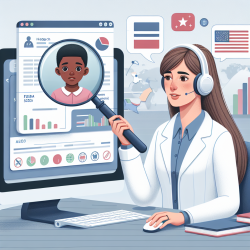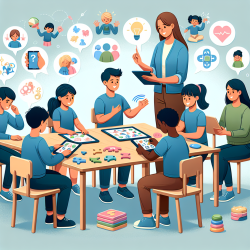Introduction
In the ever-evolving field of special education, staying informed about historical contributions and current research is crucial for practitioners seeking to enhance their skills. One such influential figure in the field was Grover F. Powers, whose work has left a lasting impact on pediatric care and special education. This blog explores how practitioners can implement insights from Powers' legacy to improve their practice and encourages further research into his methodologies.
Grover F. Powers: A Legacy of Care
Grover F. Powers was a pioneer in pediatric care, particularly in the integration of medical and educational approaches to support children with special needs. His work emphasized the importance of a holistic approach, considering not just the medical, but also the emotional and educational needs of children. Practitioners today can draw inspiration from his comprehensive view of child care, which remains relevant in modern special education settings.
Implementing Powers' Insights in Modern Practice
Practitioners can enhance their skills by integrating the following principles derived from Powers' work:
- Holistic Approach: Consider the child's medical, emotional, and educational needs as interconnected aspects that require a coordinated approach.
- Interdisciplinary Collaboration: Work closely with other professionals, including therapists, educators, and medical personnel, to create a cohesive support system for each child.
- Family Involvement: Engage families in the care and educational planning process, ensuring they are active participants in decision-making.
- Continuous Learning: Stay updated with the latest research and methodologies in special education and pediatric care to continuously improve your practice.
Encouraging Further Research
While Grover F. Powers' contributions laid a strong foundation, there is always room for further exploration and research. Practitioners are encouraged to delve deeper into his methodologies and adapt them to modern contexts. Consider conducting studies or participating in research projects that explore the integration of medical and educational strategies in special education.
Conclusion
Grover F. Powers' legacy offers valuable insights for practitioners in the field of special education. By adopting a holistic approach, fostering interdisciplinary collaboration, involving families, and committing to continuous learning, practitioners can significantly enhance their skills and improve outcomes for children with special needs. To delve deeper into Grover F. Powers' work, we encourage you to read the original research paper, Grover F. Powers. In memoriam.










